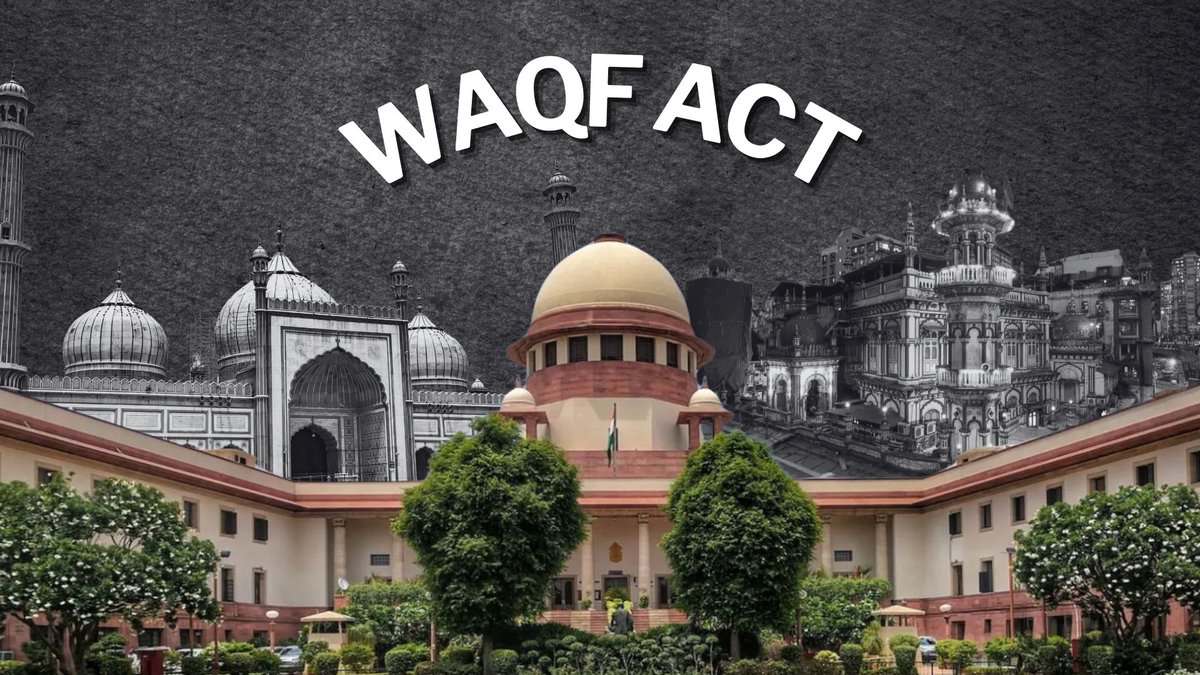
New Delhi: The Supreme Court on Monday stalled the operation of key provisions, including the one which said only those who are practising Islam for the last five years can create a waqf.
Pronouncing an interim order, a bench comprising Chief Justice B R Gavai and Justice Augustine George Masih said, “We have considered prima facie challenge to each of the sections and found no case was made out to stay the entire statute.”
Provisions of Waqf Amendment Act that are stayed
The top court, however, stayed the provision which said that persons practising Islam for the last five years can only create a waqf.
It also stayed the provision which enabled an officer designated by the government to determine the dispute whether the Waqf property has encroached on a government property.
“We have held presumption is always on constitutionality of statute and in rarest it can be done. We have found that the entire Act is challenged, but the basic challenge was sections 3(r), 3C, 14,…,” the CJI said.
It directed that as far as possible the Chief Executive Officer of the Waqf Board should be a Muslim, while refusing to stay the amendment allowing the appointment of a non-Muslim as a CEO.
It also said the number of non-Muslims in state waqf boards and central waqf councils cannot exceed three.
Jamiat, AIMPLB welcomes SC stay on Waqf law
Prominent Muslim organisations, Jamiat Ulema-e-Hind and the All India Muslim Personal Law Board (AIMPLB), welcomed the Supreme Court’s interim order and expressed confidence that the top court will “abolish this oppressive law” and ensure constitutional justice.
Jamiat Ulema-e-Hind president Maulana Arshad Madani said the interim relief has transformed its hope into certainty that justice is still alive. He said Jamiat will continue its legal and democratic struggle until this “oppressive law is repealed”.
Jamiat Ulema-e-Hind welcomes the decision granting interim relief on three key controversial provisions of the Waqf law, Madani said in a post in Hindi on X.
“This new Waqf law is a direct attack on the Constitution of the country, which not only grants equal rights to citizens and minorities but also provides them with complete religious freedom. This law is a dangerous, anti-Constitutional conspiracy to snatch away the religious freedom of Muslims,” he claimed.
Reacting to the Supreme Court judgement, Khalid Rashid Farangi Mahali, an executive member of AIMPLB, told PTI, “Muslims and the AIMPLB wanted a stay on the entire Waqf (Amendment) Act, which the Supreme Court refused. The court said the stay cannot be imposed on the entire Waqf law, but it put on hold certain provisions, which is a welcome step. We have got significant relief and hope to get complete relief when the final judgement comes.”
He added that the apex court has also directed that efforts should be made to appoint the CEO, who is also the ex-officio secretary of the Waqf board, from the Muslim community, which is a relief.
“This has given significant relief. However, the issue of non-Muslim members (in the board) is still there. The Constitution gives freedom of religion to all Indians, and Waqf is an integral part of Islam,” Mahali said.
Act notified in April
The Centre notified the Waqf (Amendment) Act, 2025 on April 8 after it got President Droupadi Murmu’s assent on April 5.
The Lok Sabha and the Rajya Sabha passed the Waqf (Amendment) Bill, 2025 on April 3 and April 4 respectively.
The top court on May 22 had reserved its order on three key issues, including the power to denotify properties declared as “waqf by courts, waqf-by-user or waqf by deed”, which cropped up during the hearing of pleas challenging the validity of the Waqf (Amendment) Act, 2025.
(The copy has been updated with comments from Jamiat and AIMPLB on Waqf law)


